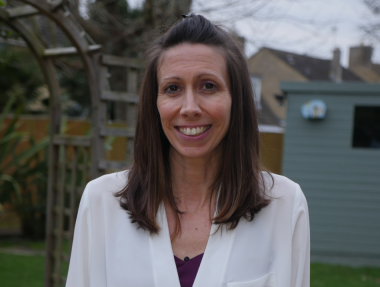Court of Appeal hears case of sacked Christian teacher

A Christian school assistant who was fired after sharing concerns about sex education lessons and transgenderism in schools will have her case heard today by the Court of Appeal.
Kristie Higgs is being supported by the Christian Legal Centre, which said that her case "has significant ramifications for Christian freedom in the workplace and the freedom of any employee to express biblical principles on marriage and family, some of which may express opposition to LGBTQI+ ideology, in public or private, without the fear of losing their livelihoods".
Higgs lost her job at Farmor's Secondary School in 2019 over two posts she shared the year before on her personal Facebook account under her maiden name.
The posts questioned the introduction of mandatory relationships and sex education lessons in her son's primary school, and the promotion of transgenderism in school library books. Although the posts did not mention her employer, the school received an anonymous complaint, leading to her dismissal for gross misconduct.
She challenged her sacking at an employment tribunal in 2020 but the judgment upheld the school's decision, concluding that it was justified in firing her because her posts could be perceived as "transphobic" and "homophobic".
An Employment Appeal Tribunal (EAT) ruled that the case should be sent back to the Employment Tribunal to be heard again, but this verdict was successfully appealed by Higgs' lawyers who argued that the ruling and guidance from the EAT diminished free speech protections.
Granting permission for her case to be heard by the Court of Appeal, Lady Justice Elisabeth Laing said earlier this year that the case "raises at least three important questions about the dismissal of an employee for the expression of her beliefs".
These include the "erroneous view that [Mrs Higgs'] views constituted unlawful discrimination", and "the extent to which an employer may lawfully dismiss an employee for expressing views which are based on her religious beliefs in a forum which is not in the workplace, is not controlled by the employer, and which has a limited number of members".
Speaking ahead of Wednesday's hearing, Mrs Higgs said she was praying for a ruling "that protects Christian employees and parents' freedom to express their beliefs without fear or being silenced".
"I wouldn't want any parent to go through what I have over the past five years. Nobody should be sacked for raising the concerns that I did in the way that I did," she said.
"One of the biggest things for me was that this dangerous and anti-Christian ideology was being introduced into a Church of England school. I could see that what was happening was harmful, and no parents appeared to know about it.
"My posts were a warning and so much of what has happened in the debate over the past five years has vindicated me. Transgender ideology and extreme sex education is harmful to children and should have no place in schools, especially not Christian primary schools."
Andrea Williams, chief executive of the Christian Legal Centre, said the case was "profoundly important for free speech and Christian freedom" and would "set an important legal precedent for many years to come".
"This case has exposed at every stage systemic prejudice against the Christian faith and its teachings. First at her school and then in the courts. Now is the time to put things right," she said.
"The outcome of this case will be huge and has been a long five-year journey."
She added, "We pray now for justice for Kristie and that there will be a ruling that not only protects Christian freedoms, but also protects freedom for everyone in the UK."
Interventions are being made in the case by Sex Matters, the Equality and Human Rights Commission, the Church of England Archbishops' Council, the Free Speech Union and the Association of Christian Teachers.
Sex Matters said that "most cases of belief discrimination that are coming up in courts and tribunals at the moment are direct discrimination – the true objection is to the belief, and not to the particular way (or time or place) the person manifested it".
It said, "Kristie Higgs' concerns about gender-identity affirmation in schools, expressed in 'florid' language in a Facebook post in 2018, were not only an expression of her religious beliefs, but were also reflected in 2024 in the more carefully written Cass Review.
"The question of what makes the manifestation of a particular belief legally 'objectionable' is specific to context – the aims of the organisation and the person's job. It is not a sweeping and vague moral judgment to be made by employment tribunals, archbishops or Stonewall."











